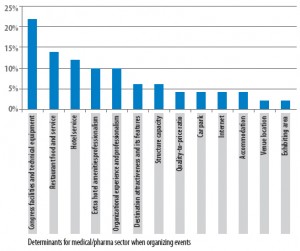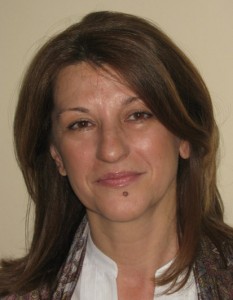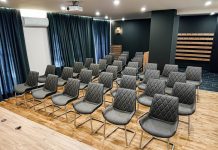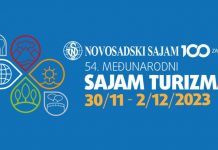„Given that it is the time of crisis, and that medical/pharmaceutical industry is one of few which hasn’t recorded fall at least in our market, it is certain that this industry is one of the most interesting for us both, for the current and for the future business“, according to Mr Matija Radovčić, Sales Manager in MICE Dept. with Radisson Blu Hotel in Dubrovnik, who was kind enough to share his opinion with us. The statement is applicable to almost all participants (hotels and agencies) in the regional MICE when it comes to medical/pharmaceutical sector. Also, Mr David Stanojević, Tami Residence Hotel Manager, Niš, says: “Bearing in mind that medical/pharmaceutical sector is growing as a sector, it will result in an increasing need for presentations and congresses and that’s why these buyers are very important to us and will influence our business in future.“
 Practice is a witness to the fact that in the times of crisis the number of enquiries by pharmaceutical sector did not fall and that it even grew due to most probably higher income that these businesses generate caused by announced pandemics and higher consumption of pharmaceutical products. The data on global drug consumption show continued growth of 7-10% per year. It has been believed until recently that such trend is due to the marketing activities of pharmaceutical companies and a continued price growth of drugs as the result of production costs. Still, the trend analyses of drug consumption showed that the consumer growth was most strongly affected by increase in volume (more patients due to better diagnosis procedures and new treatment standards, increase in the number of prescriptions per patient, new treatment mixes), and only then come new drugs and inflation.
Practice is a witness to the fact that in the times of crisis the number of enquiries by pharmaceutical sector did not fall and that it even grew due to most probably higher income that these businesses generate caused by announced pandemics and higher consumption of pharmaceutical products. The data on global drug consumption show continued growth of 7-10% per year. It has been believed until recently that such trend is due to the marketing activities of pharmaceutical companies and a continued price growth of drugs as the result of production costs. Still, the trend analyses of drug consumption showed that the consumer growth was most strongly affected by increase in volume (more patients due to better diagnosis procedures and new treatment standards, increase in the number of prescriptions per patient, new treatment mixes), and only then come new drugs and inflation.
This sector is most important to 4-star hotels with modern, well-equipped, and higher meeting capacities and it accounts for over 50% of their business. In Serbia, the capacities are mostly based in Belgrade, Zlatibor, Subotica, Niš, Vršac; in Croatia, primarily in Dubrovnik, then Zagreb, Brač, but also the entire Slavonija, Dalmatia, Istria; in Slovenia, mostly Bled, Ljubljana, Portorož; and in Montenegro, Bečići and Podgorica.
Kornelia Radić, Sales Manager with hotel & congress-business centre Galleria, Subotica, says: “This sector normally organizes several-day events with a high number of attendants and complex programme, which implies the utmost hotel engagement and higher utilization of all hotel departments, contributing to better quality business.“
Hotels and spaces which include lower business share in this sector (8-25%) aim to increase the share as they find it very important to the business in future (by number of events it is 8-25%, but in total profit the share of this sector is 30% for sure).
„Medical/pharmaceutical sector is one of the most important sectors to MICE which still has enough room to expand“, insists Mr Zdenko Posavec, Director of Antunović hotel in Zagreb.
It is mostly several-day events, with higher number of participants – 100 delegates and more, and the buyers are mostly those with big budgets, that is, since in the times of crisis it is hard to say what a big budget is, we can say that their budgets are bigger than average.
75% of respondents say that this sector most often changes the space and venue for their meetings, in particular in case of big conventions and symposiums, nonetheless, according to Marija Šebalj, Sales Manager with Croatia, Cavtat –Dubrovnik hotel, they come back every few years, while from the experience of Terme Čatež Group, Slovenia, they come back every  five years.
five years.
„The buyers in this sector aim, if possible, to keep the tradition of meeting in the same place, but only if they are satisfied with service of course. However, they are most often forced to change the venue every year due to the structure of the guests they invite (this in the first place applies to the places where big pharmaceutical/medical companies have their representative offices, and at the same time their employees)“, as emphasised by Milena Brajović, Marketing & Sales Manager of Queen of Montenegro Hotel, Bečići.
25% of respondents know from their experience that this sector does not change the venue if they are satisfied with the conditions and services, although it applies only to small-sized meetings, usually local.
The traditional and big events are normally organized by medical sector when it comes to specialist local and international congresses in specialized medical fields, while pharmaceutical sector usually organizes higher-attended, but rather smaller-sized events, workshops, presentations and promotions. It is most often about a new drug promotion or new medical tendencies presentation, according to Jovana Aleksić, Corporate Business & Marketing Manager of Holiday Inn, Belgrade.
We also examined the factors which, from the experience of MICE professionals, are crucial for medical and pharmaceutical sector in event organization.
 Convention contents, technical equipage and hall functionalities and equipage are the most important factors according to respondents, which account for 22% share. They also include modern, spacious, air-conditioned and if possible, congress halls with day-light, peace and quiet for smooth work, as well as smooth operation of technical equipment. The quality and choice of food, as well as quick and quality service in restaurants come second with 14%, and the very hotel service covers 12%. Experience, flexibility and professional organization of events as well as extra amenities of the hotel (wellness & spa, etc.) are also very important, 10% each. The destination attractiveness and its amenities are important for animating the guests (6%), and significant factors mentioned are, naturally, an adequate capacity, price-to-quality ratio, accommodation quality, parking provided, and internet connection, express check-in, adequate hotel accessibility (distance from the airport, congress centre or other relevant institution, etc.) and existing exhibition area. According to the research findings, price as a factor is important, but not critical.
Convention contents, technical equipage and hall functionalities and equipage are the most important factors according to respondents, which account for 22% share. They also include modern, spacious, air-conditioned and if possible, congress halls with day-light, peace and quiet for smooth work, as well as smooth operation of technical equipment. The quality and choice of food, as well as quick and quality service in restaurants come second with 14%, and the very hotel service covers 12%. Experience, flexibility and professional organization of events as well as extra amenities of the hotel (wellness & spa, etc.) are also very important, 10% each. The destination attractiveness and its amenities are important for animating the guests (6%), and significant factors mentioned are, naturally, an adequate capacity, price-to-quality ratio, accommodation quality, parking provided, and internet connection, express check-in, adequate hotel accessibility (distance from the airport, congress centre or other relevant institution, etc.) and existing exhibition area. According to the research findings, price as a factor is important, but not critical.
Among the regional agencies which took part in this research, we are singling out several whose business is based mostly on medical/pharmaceutical sector (50-90% of total business). This sector is very important to them since it is the only one not giving in to “crisis“, so that all bigger meetings projected for 2009 and 2010 were organized and backed by sponsors and exhibitors , according to Gulliver Travel, Dubrovnik. Congresses, symposiums and specialist seminars are the types of events mostly organized by this sector, according to all respondents. Let us see the other experience of these agencies in organizing events in medical and pharmaceutical sector.
- How many attendants do these events gather and how long do they last (in days), on average?
Smart travel, Belgrade: 100 – 2,500 attendants, 2 – 4 day long events
Gulliver travel, Dubrovnik: The number of participants depends on the event type, so that when it comes to congresses the number varies between 100 and 350, the symposiums normally gather up to 100 people, and workshops seat up to 50 people. The events run three to four days on average.
Panacomp Travel Tourism And Trade, Novi Sad: The number of attendants is 150-600, and the events last 2-3 days.
- Is there a period of the year when there are most organized events?
Smart travel, Belgrade: February, March, April, May, June, September, October, November
Gulliver travel, Dubrovnik: The periods of the year when there are most organized events, including MICE segment in general, I’d say the most frequent ones are spring and autumn
Panacomp Travel Tourism And Trade, Novi Sad: Yes, normally spring and autumn.
- Do the buyers in this sector traditionally organize certain events and how often do they change the venue and space, if any?
Smart travel, Belgrade: Yes, and it’s mostly Belgrade, Kopaonik, Zlatibor and Vrnjačka banja.
Gulliver travel, Dubrovnik : In this sector traditional conventions are customary indeed, and at the same time some medical conventions, held periodically, are traditionally attached to certain destinations. As there is saturation featured every four to five years with one destination, there is the possibility of change.
Panacomp Travel Tourism And Trade, Novi Sad: There are those who keep their meetings in one place, but there are more those who change the venue.
- Percentagewise, how many enquiries from these buyers get executed into events?
Smart travel, Belgrade: Congresses are not done through enquiries, but the organizers set the venue and date in advance, and the attendants apply based on programmes and topics and depending on the number of notices sent, around 35% applies on average.
Gulliver travel, Dubrovnik : New buyer enquiries get executed over 40%. In case of existing buyer enquiries, the execution is 100% which we believe it to indicate the rating of our work, customer satisfaction with the service quality and professional attitude, and the degrees of trust they have since they seek the continued cooperation.
Panacomp Travel Tourism And Trade, Novi Sad: 80%
- What is most important to a buyer, from your experience, regarding an event organization?
Smart travel, Belgrade: Good traffic network, good working conditions – working environment and technical support and quality accommodation and extra amenities.
Gulliver travel, Dubrovnik : It is important to the client that the destination is attractive (as that way they can draw more participants), accommodation and technical equipage are good, the airports are close and traffic network is well-connected and that logistics are good. The logistics and attractive destination are our main advantages.
Panacomp Travel Tourism And Trade, Novi Sad: The unreserved trust between the buyer and organizer, organizer’s absolute commitment to meeting the buyer requirements according to clearly specified orders, and the readiness to efficiently execute the orders made in the course of convention, without any previous announcement.
- Has the number of their events dropped for the last 2 years due to crisis? If yes, are there any changes in their requirements or priorities?
Smart travel, Belgrade: Congresses run according to a schedule, every two, three or four years and the schedule is normally pre-defined, while the priority is the specialist part, and extra activities come second.
Gulliver travel, Dubrovnik : Most of planned events took place, but with smaller budgets, therefore, the number of participants or the event length was decreased or the leisure programme was reduced. The difference we see compared to the last year is a late booking confirmation (due to expected lower prices of suppliers, in the first place hotels) which wasn’t customary in the previous years for this segment.
Panacomp Travel Tourism And Trade, Novi Sad: Yes, it has dropped.
Physicians and pharmaceutical companies are very specific travellers and seek close attention since they travel a lot and insist on details. Special conditions apply to them, not only in tourism, but also in special codes of conduct, as they value them highly. Pharmaceutical industry may be expected to set any kind of conditions. They have travelled a lot, seen all kinds of stuff and aim to find some different solutions, more inspiring ones and then it’s up to us as agencies to deliver good and different ideas adapted to their needs of course, and which will refresh and add something new to their travels. They are a specific public which cannot indulge in any type of entertainment or food, etc. You always have to be up-to-date when dealing with them. Stjepan Zovko, Spektar Holidays
 Experience in medical/pharmaceutical sector was also shared with readers of SEEbtm magazine by Dragana Babović, MICE Coordinator with Belgrade Convention Bureau.
Experience in medical/pharmaceutical sector was also shared with readers of SEEbtm magazine by Dragana Babović, MICE Coordinator with Belgrade Convention Bureau.
1. What’s the percentage of your clients in medical/pharmaceutical sector?
According to enquiries at specialized MICE exchanges participated by Belgrade Convention Bureau it’s around 60%.
2. Do the clients in this segment traditionally hold some meetings and how often do they change the venue and space, if any?
It depends on the Organizer, that is, Association which organizes the meeting, but the venues mostly change. If a meeting is European, the venue moves between European cities, and if international, then it includes continents too, but if it is an event with a long tradition some cities can normally host the same event up to three times.
If it is a local, that is, national event, the venues may move within the country (although in our case they are traditionally held at one venue), and in case of the same venue, the meeting can be held in a different space depending on the number of attendants, the size of background exhibition, specific to this type of meetings, the available budget or space costs, etc. The same space rules apply to European and international meetings too.
3. What is most important for such client in the event organization from your experience?
The highest quality of products and services all the way from space, hotel, to leisure programme, since they are normally represented by big international PCOs, the so-called core PCOs, and if such conditions are not met, they opt for another venue at PCO recommendation. This applies to the destination qualification process.








































 Srpski
Srpski English
English